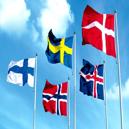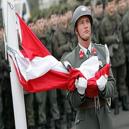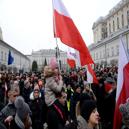Союз демократических левых сил обладал в Польше в 1990-х гг. организационными преимуществами перед другими политическими партиями. Электоральные победы левых в этот период объясняются разобщенностью лагеря «реформаторов» и эффектом «шоковой терапии», стремлением избирателей поддержать привычных, неагрессивных политиков. Стратегическим недостатком левых стала утрата ими идеологического своеобразия и неспособность наладить повседневную работу со своими потенциальными сторонниками, а также перехват партией «Право и Справедливость» левых идей и избирателей, противодействие левым католической церкви. Сейчас левые не являются значимой политической силой и не обладают даже потенциальной поддержкой избирателей
"Left" parties today
The potential of the opposition in contemporary Poland.
The Union of Democratic Left Forces possessed in Poland in the 1990s. organizational advantages over other political parties. The electoral victories of the left during this period are explained by the disunity of the “reformers” groups and the effect of “shock therapy”, voters' desire to support the usual, non-aggressive politicians. The strategic disadvantage of the left was their loss of ideological identity and their inability to manage daily work with their potential supporters, as well as interception by the “Law and Justice” party of left ideas and voters, opposition from the left by Roman Catholic Church. Currently, left-wing political groups are not a reference actor and do not have sufficient, even potential, support from voters.
 Ранний опыт государственного строительства большевиков и Конституция РСФСР 1918 года
Ранний опыт государственного строительства большевиков и Конституция РСФСР 1918 года
 7
7
 25209
|
Официальные извинения
25209
|
Официальные извинения
 972
972
 104390
|
Становление корпоративизма в современной России. Угрозы и возможности
104390
|
Становление корпоративизма в современной России. Угрозы и возможности
 239
239
 84218
84218










